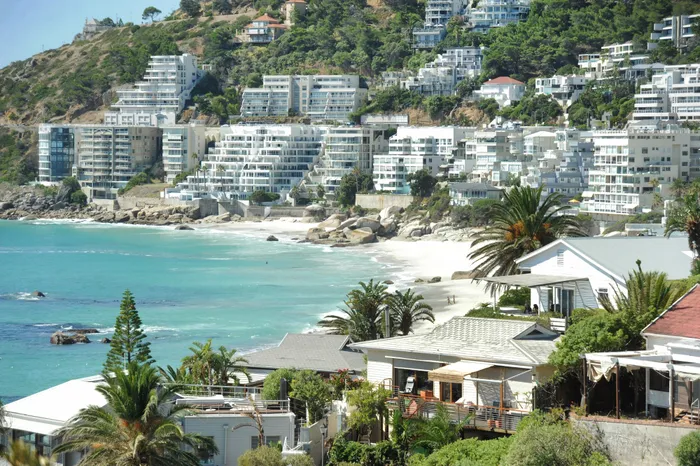
The Atlantic Seaboard is unaffordable to the average South Africa but still has major allure for high-end buyers and investors.
Image: Armand Hough/African News Agency(ANA)
The Atlantic Seaboard opportunity remains compelling for prospective investors, but success increasingly depends on implementing sophisticated operational systems alongside securing premium locations.
Observing a pattern among successful operators, Richard Marshall, whose company Nox Cape Town manages numerous Atlantic Seaboard properties, said: "The investors who thrive are those who budget 8-10% of rental income specifically for upkeep, split between routine work and emergency repairs.
"Those who don't will see their property values and rental revenues steadily decline over time."
The company said this decline is not merely theoretical. It said in Cape Town's competitive luxury market, where guests readily compare properties online and post detailed reviews, even minor defects can trigger rating drops that impact booking frequency and achievable rates.
Those who combine strategic property acquisition with systematic operational excellence are positioning themselves to capitalise on one of South Africa's most dynamic rental markets, Marshall said.
According to Nox, the Atlantic Seaboard's skyline tells a story of transformation. It said from Camps Bay to Bantry Bay, construction cranes and renovation projects signal a market in evolution, as property owners race to capitalise on Cape Town's booming short-term rental sector.
Yet, it added that beneath this surface activity lies a more complex reality. While renovation fever grips the coastline, a growing number of property investors are discovering that the real challenge is not acquiring premium real estate, but maintaining it profitably.
Marshall said industry data suggests that property upkeep can consume 10% or more of rental income, with annual costs typically ranging between 1 to 2% of a property's total value.
He said for an R8 million Atlantic Seaboard apartment, this translates to R80 000 to R160 000 annually in routine care expenses alone. He added that these figures become more daunting when considering the unique pressures facing short-term rental properties.
“Unlike traditional residential lettings, vacation rentals experience constant guest turnover, accelerated wear on fixtures and fittings, and heightened expectations for hotel-standard amenities. Add the coastal environment's salt air and wind exposure, and the challenge intensifies considerably.”
Providing expert advice on how to avoid costly mistakes and ensure peace of mind when tackling a home renovation, the Master Builders Association Western Cape (MBAWC) said that renovating a home, whether adding a new bedroom, redoing the kitchen, or undertaking a full-scale makeover, is a major investment.
It said that, done well, it can enhance not only the comfort and value of one's property but also one's daily life. Done poorly, however, it said this can result in unexpected costs, delays, disputes, or even dangerous workmanship.
MBAWC said from budgeting and compliance to contracts and contractor selection, there is a lot homeowners need to get right from the very beginning.
Nox said the challenge is particularly acute given the area's architectural heritage. It said many buildings in the Atlantic Seaboard date from the mid-20th-century art deco period, creating properties with character but also with ageing infrastructure requiring specialist attention.
It said some owners have opted for complete demolition and reconstruction, whilst others pursue extensive renovation programmes.
The renovation boom, according to Marshall, reflects broader market dynamics.
“International tourism's recovery has increased demand for premium accommodation, whilst local investors seek alternatives to volatile financial markets.
"However, the gap between acquisition enthusiasm and operational reality is becoming apparent.”
Nox advised investors to prioritise preventative care over reactive repairs, maintain detailed logs using technology platforms, invest in quality finishes and fixtures, embrace technological trends and sustainable upgrades, engage professional property management services and implement asset depreciation planning.
Marshall added that successful short-term rental operations are increasingly mirroring hospitality businesses rather than traditional property investments, according to reports from property management companies.
This includes implementing preventative care schedules, maintaining detailed repair logs, and ensuring rapid response to guest complaints, Marshall said.
Related Topics:
